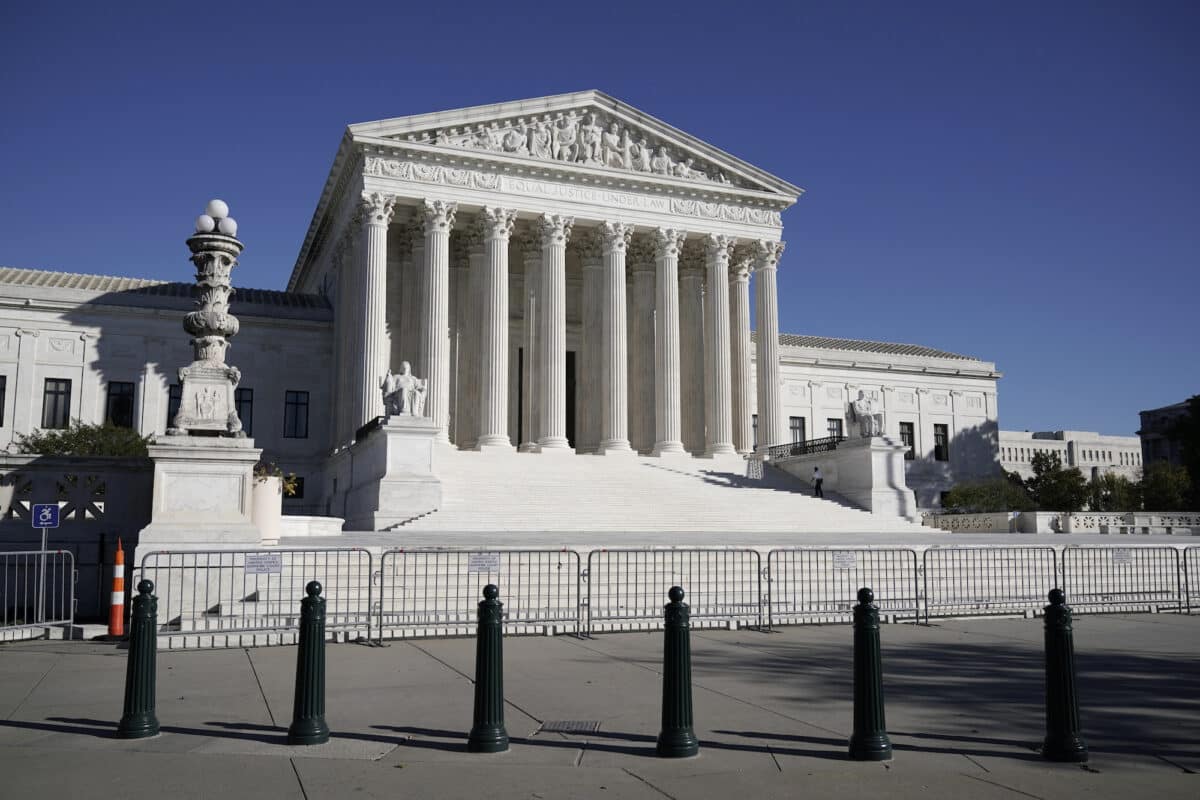The Supreme Court summarily rejected an emergency application by a Republican congressman that, had it been granted in time, may have allowed Vice President Mike Pence to reject Electoral College votes from states disputed by Republicans, possibly giving President Donald Trump a second term.
The high court’s unsigned decision in Gohmert v. Pence, court file number 20A115, was made public Jan. 7 at about 1 p.m., nine hours after Congress formally certified Democratic candidate Joe Biden’s victory in the presidential election. The certification itself came after the congressional proceedings were halted for hours when protesters bearing Trump campaign flags and paraphernalia stormed the U.S. Capitol, destroying property and clashing with police.
Attorney Sidney Powell, counsel of record for Rep. Louie Gohmert (R-Texas), told The Epoch Times she wasn’t pleased with the ruling, describing it in an email as “extremely disappointing and concerning for the future of the Republic.”
The application was addressed to Justice Samuel Alito, who referred it to the full court, whose members, in turn, dismissed the lawsuit. According to its usual practice when rejecting emergency applications, the court provided no explanation for its decision. No justices indicated they were dissenting from the ruling.
The emergency appeal was filed with the Supreme Court in the afternoon on Jan. 6 as Congress was considering Republican lawmakers’ objections lodged against Electoral College votes from states that Trump claimed had experienced election irregularities significant enough to taint the results.
The lawsuit brought by Gohmert worked its way through the judicial system. It was rejected by a U.S. District Court judge and then on appeal by the U.S. Court of Appeals for the 5th Circuit.
The Electoral Count Act (ECA) of 1887 shifted most of the responsibility for resolving presidential electoral disputes to the states. If a state follows the statute’s “safe harbor” standards and the state’s governor properly submits one slate of electoral votes, the law says that “final” determination shall prevail. Congress was left with the ability to reject electoral votes only for specific defects or if the votes were deemed not “regularly given.”
Under the 12th Amendment, the vice president in his capacity as presiding officer of the Senate opens the electoral certificates from the states and leads the count.
Pence made it clear in a letter released just before the congressional joint session began that he didn’t believe he had the “unilateral authority” to reject electoral votes.
Both chambers of Congress can overrule the vice president’s decision to include or exclude votes, but Gohmert and his fellow plaintiffs argued that the ECA unconstitutionally ties the hands of the vice president, who enjoys the discretionary authority to reject electoral votes.
The legal complaint stated that the counting of electoral votes in Congress after a presidential election was normally of little interest, but this time, “our nation stands at the crossroads of a Constitutional crisis fraught by chaos and turmoil brought into play by a viral plague, anti-democratic interference from domestic and foreign sources, and hastily enacted State voting measures ostensibly placed to protect voters from catching the plague.”
“At stake is Americans’ confidence in the integrity of their electoral system and mechanisms of government—not to mention the results of the election itself,” the complaint stated.



